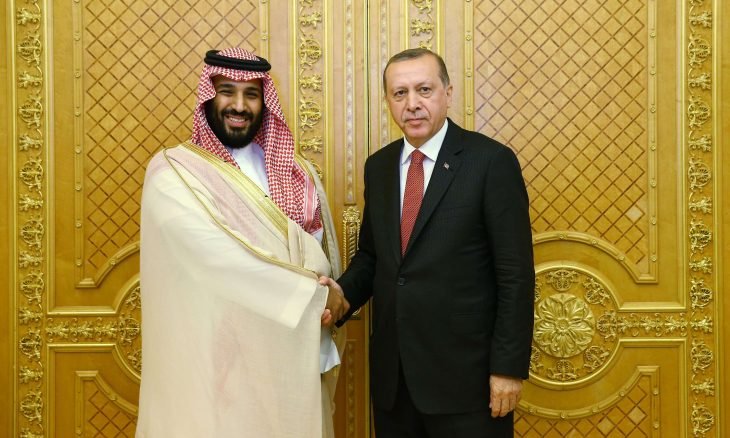Speaking with the Strategic Council on Foreign Relations, Siyamak Kakaei referred to the two-day visit by Turkish President to Saudi Arabia in five years and said that in recent years, a series of important developments in the region caused severance of relations between Turkey and Saudi Arabia.
“In recent years, a series of regional developments have led to the distance of two important countries in the Middle East, which can perhaps be analyzed as the starting point of this turmoil in the change of Turkish foreign policy in the region. It was the beginning of tensions that forced Riyadh to part ways with Ankara when Erdogan and the leaders of Justice and Development Party decided to provide a political model for post-Arab Spring countries such as Egypt”, he said when asked about reasons Turkey was again inclined towards Saudi Arabia and the conditions Riyadh opened doors to Erdogan.
According to Kakaei, one of the differences between the two countries was the difference in the views of Turkey and Saudi Arabia towards the Muslim Brotherhood, and Ankara’s policy in supporting the Egyptian Brotherhood and the region was of great concern to countries such as Saudi Arabia, the United Arab Emirates and Egypt.
He added that Turkey’s involvement in the Syrian crisis and the difference in the type of strategies of the countries in the region in Syria practically caused the country to gradually become involved in the security situation in the surrounding areas, and therefore we witnessed a period of isolation of Turkish foreign policy in the Middle East.
Noting that the situation intensified, especially after the failed 2016 coup, Kakaei stressed that at the same time in Turkey, some people were talking about Saudi Arabia’s satisfaction with the coup in Turkey.
According to this expert, another tragic event in Ankara-Riyadh relations was the assassination of Jamal Khashoggi at the Saudi consulate in Istanbul, which pushed the two sides to the brink of a serious crisis. In fact, Turkey did not hesitate to introduce Saudi Arabia and its role in Khashoggi’s assassination, and this situation had detrimental effects on Saudi Arabia’s credibility.
Asked about why after the passage of three years from that incident, now the leaders of Turkey and Saudi Arabia are welcoming each other with open eyes, Kakaei said this meeting can show the nature of political behavior. In the sense that interests can determine hostility and friendship and justify certain behaviors in the political arena.
However, this expert believes that if we look at Saudi-Turkish relations from a realistic point of view, it would be natural for Ankara to reconsider its relations in the Middle East.
“In the past year, open and secret consultations have been held to resume Turkey’s relations with Saudi Arabia and Egypt as two important countries and the Zionist regime as an important party in the Eastern Mediterranean, which resulted in the recent visit of the Zionist regime government to Turkey and now Erdogan’s regional trip to Saudi Arabia and possibly occupied Palestine and Egypt. “So these visits should be seen as a sign of redefining Ankara’s regional relations.”
Referring to Turkey’s need for Saudi Arabia and the UAE and their capital to overcome the economic crisis, as well as the country’s concerns in the Eastern Mediterranean, Kakaei said that this would lead to a fading of ideological behavior in Turkey and perhaps less tension would be seen between Turkey and the Zionist regime on the Palestinian issues.
“Also, the political and ideological differences between Turkey and Saudi Arabia over the Brotherhood’s ideas may be erased from the memory of the two countries’ historical relations, and Turkey’s criticisms of the human rights situation in Saudi Arabia may not be repeated.”
Kakaei concluded that Turkey is now looking forward to tangible gains in relations with Saudi Arabia, the UAE, Egypt and the Zionist regime. This comes at a time when tensions between Turkey and the West are high and Ankara’s relations with Moscow have been somewhat overshadowed by the Ukraine crisis. Under these circumstances, Turkey intends to return to the region once again, which could be a way out of the country’s internal and regional crises.










0 Comments